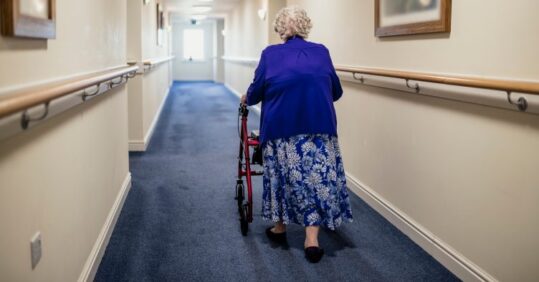‘Human rights may have been breached by do-not-resuscitate orders’

The CQC has made a range of recommendations around orders not to resuscitate after it found patients’ human rights may have been breached 500 times during the pandemic.
In its review on Do Not Attempt CPR (DNACPR) orders published today, the body also called for a new Ministerial Oversight Group to look in-depth at the issues it identified and oversee the required changes.
It also recommended that health and social care staff are given ‘clear and consistent’ training in line with a national, unified approach to DNACPR decision-making.
The Government commissioned the CQC to carry out a review of DNACPR decisions last October, in response to concerns they were being applied inappropriately during Covid.
Related Article: QICN bids farewell to Dr Crystal Oldman as she retires from CEO role
An information request to adult social care providers by the CQC found that 6% of 2,048 providers felt people in their care had been subject to inappropriate ‘blanket’ DNACPR decisions during the pandemic.
It also concluded that the number of patients with DNACPR orders in place increased in the pandemic, from 28% to 36%. In nursing homes, the figure increased from 74% to 92%.
Some DNACPR agreements had not been agreed in discussion with the person or considered as part of a personalised care plan, the CQC found.
It said this painted ‘a worrying picture’ of poor involvement of patients, poor record keeping, and a lack of oversight and scrutiny of the decisions being made.
And, while many decisions had been overturned amid national ‘messaging and support’, some were still in place in December 2020.
The regulator said the figures raised ‘serious concerns’ that individuals’ human rights – to be involved in decisions over whether to resuscitate about themselves or their families – were potentially being breached in more than 500 cases across the adult care services it surveyed.
Related Article: England’s domestic supply of learning disability nurses projected to end by 2028
Looking at causes, the investigation, which also included a public survey and fieldwork in seven CCGs, listed pandemic staff pressures and rapidly changing guidance from commissioners.
However, the CQC added that the issues raised in the report ‘pre-date the pandemic’.
It concluded: ‘Clinicians, professionals and workers must have the knowledge, skills and confidence to speak with people about, and support them in, making DNACPR decisions.
‘To do this, there needs to be clear and consistent training, standards, guidance and tools for the current and future workforce.
‘This needs to be in line with a national, unified approach to DNACPR decision making. Providers also need to ensure that there is training and development available for all health and care professionals.’
Related Article: Not enough specialist nurses to provide palliative care in rural communities
Rosie Benneyworth, CQC’s chief inspector for primary care, said: ‘Covid-19 has brought this to the fore but these are not new issues. While this rapid review was not asked to make judgements on how decisions might have impacted individual cases, we have to take this opportunity to address these problems.
‘We need to make sure that people have the opportunity to discuss their wishes about care and treatment in a compassionate and person-centred way.’

See how our symptom tool can help you make better sense of patient presentations
Click here to search a symptom




